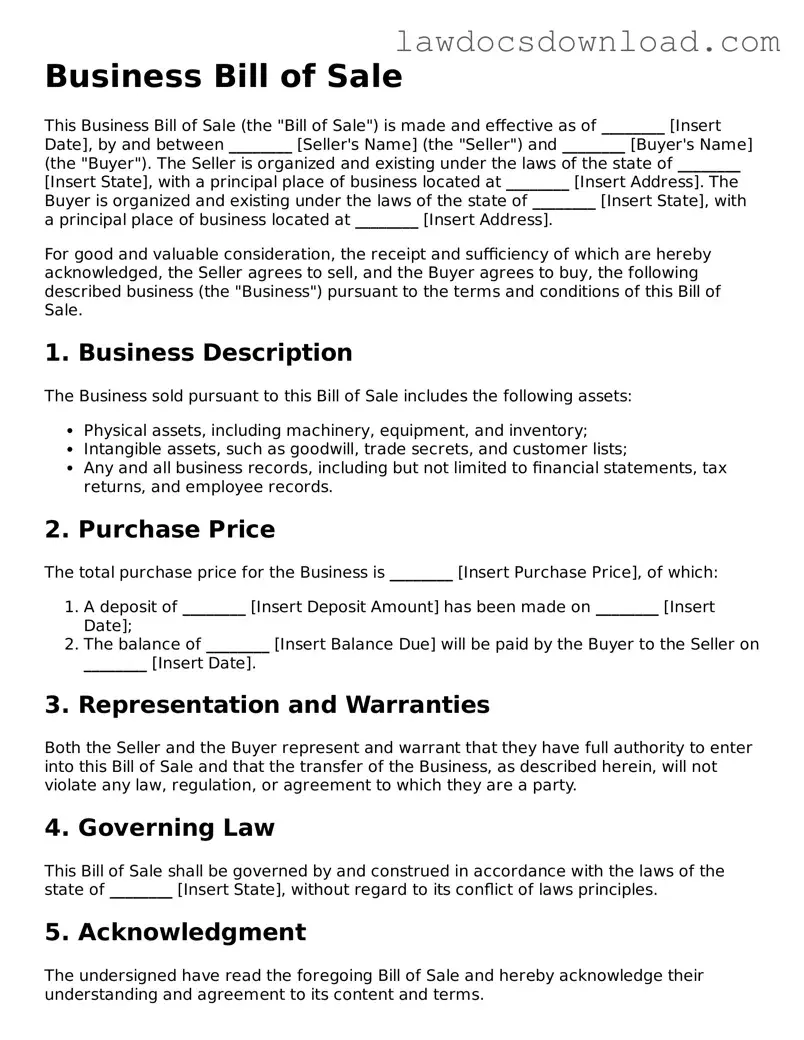Blank Business Bill of Sale Template
A Business Bill of Sale form is an essential document used during the purchase of a business. It acts as a legal record, certifying the transfer of ownership from the seller to the buyer. This form outlines the agreement's specifics, ensuring both parties have a clear understanding of the terms.
Launch Business Bill of Sale Editor Here

Blank Business Bill of Sale Template
Launch Business Bill of Sale Editor Here

Launch Business Bill of Sale Editor Here
or
Free Business Bill of Sale
Get this form done in minutes
Complete your Business Bill of Sale online and download the final PDF.